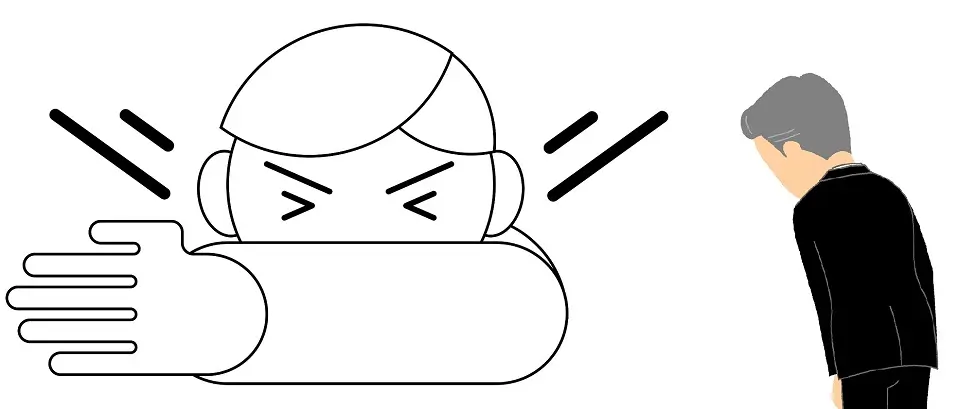

Japan is a society of many unspoken and unwritten rules. People here grow up with these prevalent Japanese unspoken rules, which parents and teachers directly or indirectly teach. However, as a foreigner, it’s vital to understand these rules to better integrate with Japanese society.
We call Japan’s rules and etiquette “unwritten and unspoken” because, though they are spoken inside society, Japanese people do not discuss them with foreigners.
Of course, these are not written in any rule book. As a foreigner visiting or living in Japan, one has to observe and adapt to these mannerisms.
In fact, unwritten and unspoken rules are integrated into every society worldwide. However, some societies, like Japan, are very particular about them.
Sticking to these traditional values happens more in societies that still value their traditions because they find value in them. And yes, why not? Those traditions are like foundation stones.
We build over the foundations, renovate, and can keep on changing the interior decorations or exterior looks. However, we keep the foundation. The unspoken and unwritten rule of Japanese society is nothing but the foundation stones of Japan.
In this article
Proper etiquette is given the utmost importance in Japan. Breaching those protocols will often result in a few estranged looks from people around you.
From train etiquette to chopsticks to dressing, the sheer number of unspoken rules in Japan can be intimidating for those who have just begun life there!
As a tourist, you will have ample leeway in Japan. However, once you settle down as a resident of Japan, the expectation of understanding and following social norms is a lot higher.
However, you shouldn’t let cultural barriers stand in the way of prosperous expat life! With just a bit of research and an open mind, you can easily uncover and master most of Japan’s unwritten rules!
We can split Japan’s unwritten into the following two categories:

Whether commuting to work or on a leisurely stroll, you rarely spot Japanese locals enjoying a bite while walking. Even a mess-free, bite-sized chocolate bar is off-limits, which can be tough for those prone to running late!
On the other hand, eating outside, even on the street, is fine if you are not walking and eating. Just stop, relax, and finish your food and drink before moving on. This cultural code is also because of Japan’s distinct lack of public trash cans. The lack of trash cans encourages people to finish their snacks indoors and not bring them to town.
Extra tip: While enjoying a meal on the bullet train is the epitome of bliss, do not eat on the regular train!

Despite short skirts being all the rage, the Japanese dress code is still largely conservative. Japanese women tend to opt for high-cut tops with sleeves that cover the shoulders and no leggings or yoga pants. For men, singlets and tank tops are unusual in public, with a tidy T-shirt or button-up shirt being the norm.
Shorts are a little out of place when dining out, even in midsummer. Similarly, being shirtless outdoors (unless at the beach) is a hefty faux pas.
Japanese society values a prim appearance. Neat and properly worn suits and uniforms form the foundation of business and daily life. But, of course, there’s a time and place for everything in Japan, and dress codes are much more lenient if you’re at the beach or a nightclub.
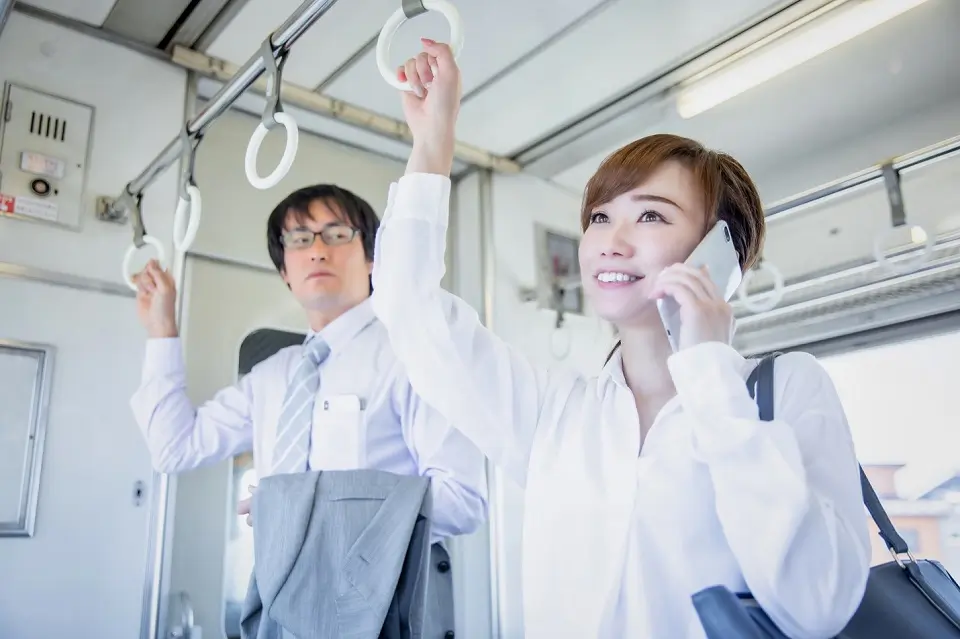
Making a few phone calls or chatting loudly with friends on the train or public transport is overtly frowned upon in Japan. It should be quick and discreet if you must make or answer a call because of an emergency.
Of course, you may sometimes see some Japanese people ignoring these rules, too, but often, this is because of emergencies. Similarly, it would be best to keep your mobile phones silent on Japanese public transport.
In a strict sense, we cannot term this practice an unspoken rule of Japan because it is frequently announced on Japanese trains. However, it is an unwritten rule because Japan has no laws against talking on mobile phones.
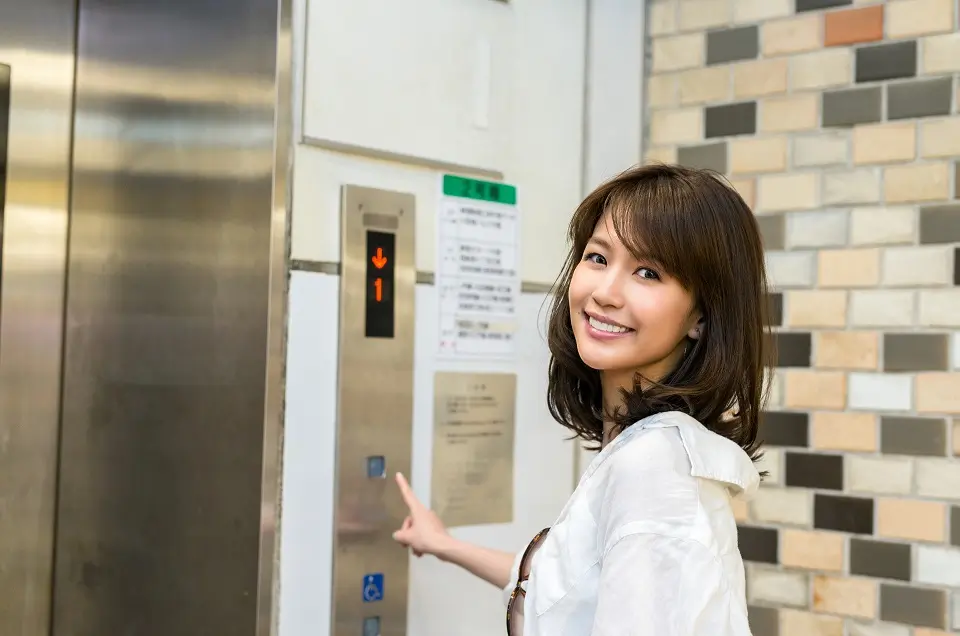
Elevator manners in Japan are an area where many foreigners fail.
If strangers are in the elevator, speaking to accompanying friends, family, or colleagues is not advisable. Similarly, mobile phone calls are a big no in elevators in Japan, and you must keep your mobiles in silent mode.
This is an unspoken Japanese rule that the person nearest to the elevator button panel should keep the elevator door open for all exiting or entering on any floor. Therefore, if you are near the button panel, you should be the last to exit. You should exit once you keep the “open door” button pressed for all the people exiting the elevator.

Unlike in other countries, people stand in a single file on one side of the escalators. This enables people who may be in a hurry to climb up instead of standing.
In case you are unsure where to stand, check which side of the escalator people are standing in front of you. Stand behind them so that you don’t block other people’s way.
If you are in a group, you should ensure that only one person stands on one step of the escalator.
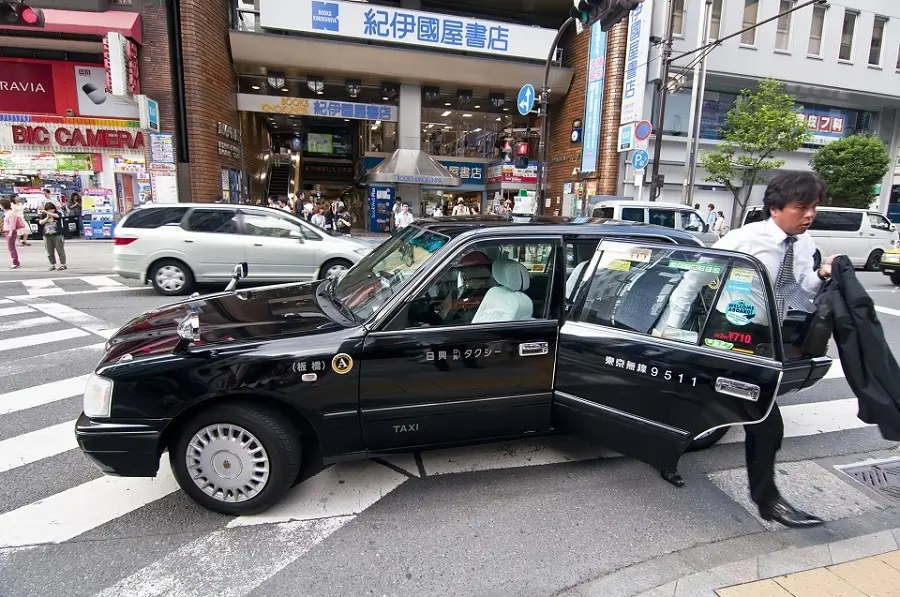
In Japan, the taxi driver acts as your chauffeur. Now, as it is not practical for him or her to get off every time to open or close the taxi door for you, the taxi doors are automatic. So, wait for the doors to open while entering or exiting a taxi.

For many foreigners, the balconies of their apartments are part of their homes. Yes, it’s true; however, we can’t ignore the fact that a balcony is outside the apartment. What we do on a balcony may disturb the neighbors. Considering this, talking over the phone or otherwise at a pitch that can carry your voice to the neighboring apartment is rude in Japan.
Similarly, smoking on the balcony is a “BIG NO” in Japan. Breaking the above-unwritten rules will make your neighbor complain to the building management.

Japanese people avoid talking on mobile phones inside any restaurant. The exception to this unspoken rule is if you are in a separate room with no strangers around you. But, of course, just like public transport and elevators, you should keep your phone in silent mode.

Before heading home after a vacation, stock up on omiyage souvenirs! It would be best if you bought small souvenirs at your holiday destination as a courtesy to coworkers, friends, and family members.
Finding something special for everybody would be a considerable task, so special local delicacies are readily available at souvenir shops across Japan.
The typical gifts often include mochi, cookies, chocolates, dango, biscuits, etc. Once you return to work, open the set and place it in the office kitchen or staff room with a note thanking everyone for the time off.
Please remember that Gifting is an important part of Japanese culture. While a little tedious, people will greatly appreciate your efforts! Please read the article Gift Giving in Japan to learn more about it.
When moving into a new residence, it is common to give a small gift to your immediate neighbors with an introduction and “dozo yoroshiku onegai shimasu” or “dozo yoroshiku onegai itashimasu”, to be extremely polite. Yoroshiku onegaishimasu or yoroshiku onegaiitashimasu is a magical and very important expression in Japan, which can open doors for you.
There is no exact equivalent of Yoroshiku in English, but it means “a request to maintain kindness” towards the person mentioning this and showing gratitude towards the person in front.
In many countries, it is quite the opposite, where neighbors are the ones who bring a cake or a batch of fresh cookies. Nonetheless, it is a nice gesture and a good way to fit into the Japanese community. Following this unwritten rule or custom is more common in smaller and rural areas in Japan, where people tend to know everyone.

In Japan, when out and about with coworkers, extended family, new friends, or other formal groups, it’s polite to top up the glasses of those around you – especially your boss, manager, or in-laws.
Keeping an eye on the glasses going empty of people around you and refilling them before they are empty shows respect and admiration and is a valuable social custom. The simple gesture indicates that you are attentive to others’ needs and earns you the gratitude of peers and superiors.
Rather than just doing it discreetly, once you notice a glass getting empty (but before being finished), take the bottle and gesture your intention towards your target. They will then pick up their glass or cup and wait for you to fill it.
As this custom generally pertains to alcohol, namely beer and sake, you won’t need to worry as much about soft drinks or other beverages. Conversely, if you are the guest of honor, wait for those around you to fill your glass, and don’t be too hasty to do it yourself.
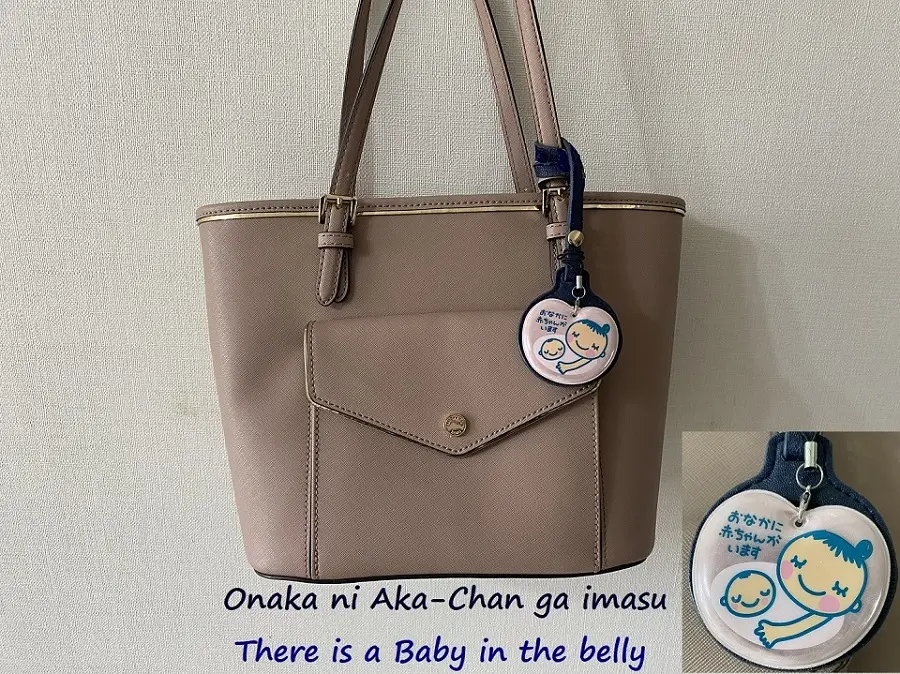
Japan has a strong culture of relinquishing seats for the older, disabled, pregnant, or other passengers who need to sit down more than most. This is especially true for the priority seating or yusenseki (優先席) often found on either end of the carriage.
While you are welcome to sit here if seats are available, you should be ready to move immediately when you see someone needing the seat more than you. People will often not ask you directly, so keep an eye on your surroundings, stand up, and walk away if you spot someone in need.
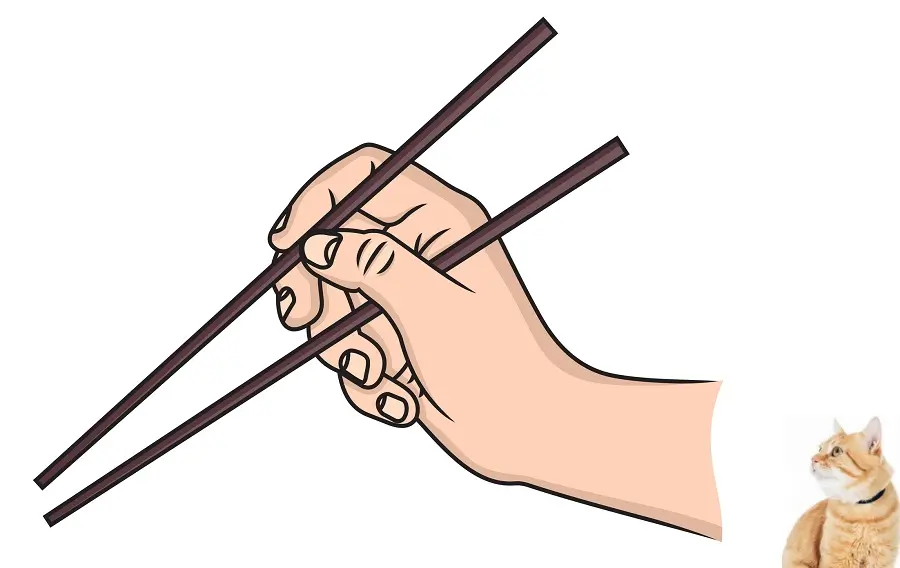
You may have mastered your chopsticks game on Chinese takeout or often eating in Japanese restaurants back home. However, Japan has a swathe of extra chopstick rules ready to make you an amateur again. If you cannot use chopsticks (箸, Hashi), asking for a spoon and fork is better than experimenting with them while dining with others.
As Japanese meals often involve sharing a platter of mains amongst a group, chopstick etiquette is vital in ensuring an orderly and hygienic feast. If you’re dining out, particularly at a formal function, it’s best to practice in advance.
Please note that chopsticks are very important in Japanese culture, and Japanese people watch the chopstick mannerisms very closely. How you hold and use chopsticks in Japan tells you about your class. Following the unspoken rules about how to use chopsticks will make you a better fit in Japanese society.
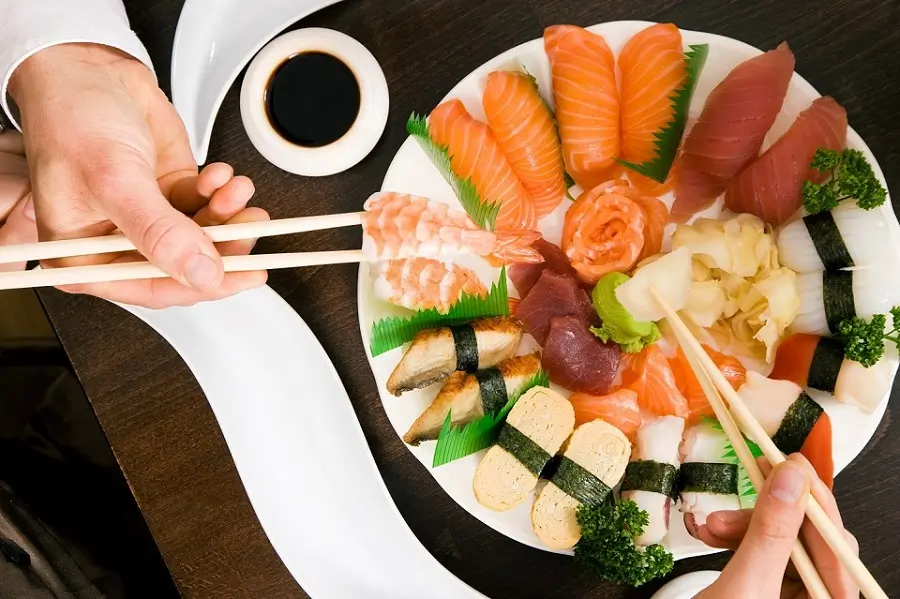
In addition to chopstick etiquette and refilling glasses, remember never to eat food directly from the dishes placed in the center of the table. Instead, fill your torizara (取り皿) plate with various foods and eat them from there.
Extra tip: Say itadakimasu before you start taking food or eating.

As a general rule, Japanese people prefer soft-spoken voices with personal chatter kept to a minimum. This is doubly true at work, where talking excessively about your life, complaining, or asking personal questions reeks of unprofessionalism.
Those who speak loudly outside, on public transport, or in cafes/shops stick out like a sore thumb and will attract the gaze of irritated locals. That being said, once you’re at a bar or izakaya, feel free to loosen up and speak about what you like at a volume that suits you.

Japan’s elaborate garbage disposal system differs slightly between cities and prefectures, so you should find out the rules before throwing stuff away.
Generally, you’ll need to separate burnable garbage (food, paper, etc.), plastics, cardboard, plastic bottles, cans, and glass bottles and put them in your designated neighborhood bin on the correct day. You’ll also often be expected to remove caps and labels from bottles and throw them away separately, although this isn’t as important for public trash cans.
In addition, many public bins are separated for burnable garbage or moyasu gomi (燃えるゴミ), and unburnable or moyasanai (燃えないゴミ).
In particular, those next to vending machines or in train stations are often meant for cans or bottles. So, do not use those trash cans for anything else. While this rule is widely written, it takes a bit of getting used to it!

In Japan, washing the body is done outside the bathtub, and soaking in the bath is done after. Therefore, never wash inside the bathtub or go into the bath without showering first.
Cleanliness is taken very seriously, and if you breach this rule, you will be reprimanded with a “what are you doing” stare. It never happened to me, but I have seen this happen.

Unlike most countries, tipping is not a part of Japanese culture. After all, charging extra for service is an insult to the service. Once, I ordered pizza delivery when it was raining outside, and I tried to offer a tip for the trouble, but it was quickly refused with a “thank you.”
In some cases, if you are regular and the proprietors of a small store are kind and give you better service than most, it is common to bring a small gift as a token of appreciation in return, but not a tip.
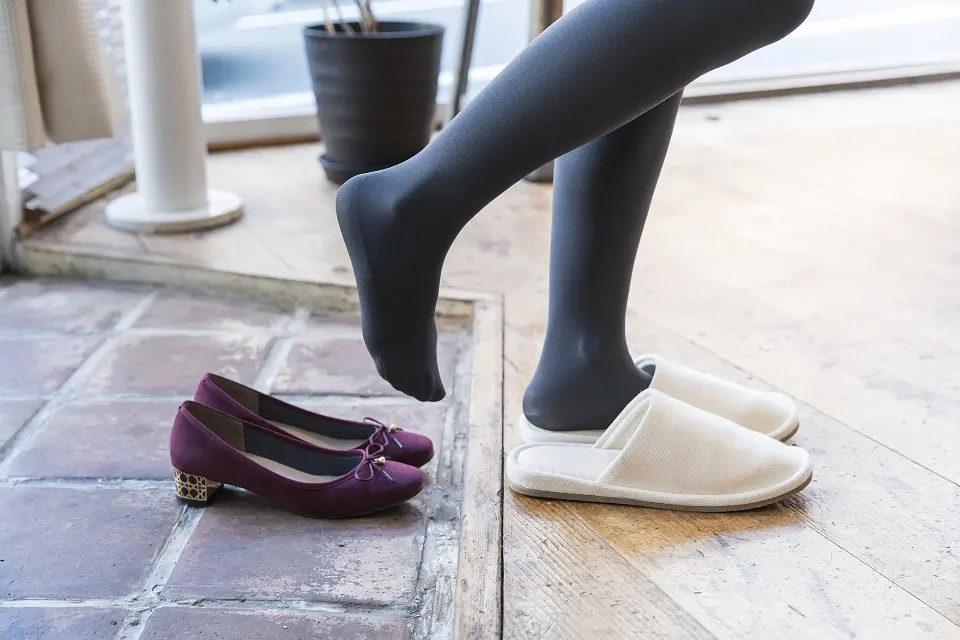
Unlike most countries, you do not enter the home with shoes. This has its roots in Japanese tradition and culture to avoid getting the floor dirty. In the past, most houses had tatami floors, and people sat on the floors to eat and sleep.
Many people still do, and this tradition has never changed. You take off your shoes even at traditional Japanese restaurants with tatami mats, onsen, and tea houses. So, remember this the next time if you are not used to the practice.
If you are visiting a friend, don’t worry—when you leave and say goodbye, you will have your flip-flops or shoes back on!

Another unspoken rule of Japan that most foreigners take a long time to become habitual to is the rule about toilet slippers.
You may find it strange if you have not been to Japan yet, but in Japan, the toilet having separate toilet slippers is another unspoken rule that most foreigners take long to be habitual of.
The toilet slippers remain in the toilet. Therefore, you need to take out the slippers you are wearing outside the toilet and step into the toilet slippers kept inside the toilets, just near the door.
Please ensure you do not enter the toilet without stepping into the slippers.
Modern offices, Western-style restaurants, public places, and hotels are the exceptions to these rules. On the other hand, the separate toilet slippers’ rule is firmly applicable at homes, Japanese-style restaurants except for some cheaper ones, and toilets in public places like railway stations.
While we discussed the importance of silence, continuous communication among the team members and even family is crucial in Japanese culture to keep everyone on the same page.
The logic behind the reasoning for Japan’s unspoken and unwritten rules is the same– to be courteous, have general mannerisms, and care about others. Let’s have a look at these rules and the reasoning in the table below:
| Unspoken Rule | Reasoning |
|---|---|
| Not to eat while walking | General mannerisms and maintaining cleanliness |
| To dress conservatively | Maintaining harmony and not standing out in the crowd |
| Not to make noises on the train | Being courteous and not disturbing fellow passengers |
| Elevator manners | Respect for others and not disturbing other elevator riders |
| Escalator manners | Consideration of others as they may be in a hurry |
| Rules about Taxi doors | Letting the driver follow the unspoken rules to be respectful |
| Unspoken rules for apartment balconies | Being courteous to your neighbors |
| No mobile calls in the restaurants | Not to disturb other guests of the restaurants |
| Omiyage (gift) giving after a trip | Letting people know that you think about them even during your time away |
| Giving gifts to neighbors at new home | Showing respect to the new neighbors and letting them know that you are happy to be among them |
| Topping up others’ glasses | To be attentive to others’ needs and to show respect |
| Offering seats to the needy in public transports | Being courteous |
| Chopsticks mannerism | General mannerism |
| Not eating directly from the main dishes | General mannerisms and courtesy to others |
| Speaking softly and not making loud noises | Being courteous and not disturbing others near you |
| Separating garbage | To maintain environment friendliness by enabling recycling |
| Washing before entering the bathtub | Courtesy to others using the same bath by ensuring the cleanliness of the bath |
| No tips for services | Service to the customers is a duty and not an obligation |
| No shoes inside homes | To maintain hygiene and cleanliness |
| Toilet slippers to remain inside the toilet | To maintain hygiene and cleanliness |
We hope this list of 21 unwritten and unspoken rules in Japan has helped clear up the finer details of Japanese life.
While a myriad of additional business rules, hot spring rules, dating rules, dining rules, and more make this barely the beginning, by mastering these fundamental guidelines, your life in Japan will start on the right foot!
Check out our other resources on basic Japanese traditions and rules, such as a helpful resource on Japanese seating protocols during business meetings and business dinners, bowing etiquette, and the work culture in Japan.

A long-term ex-pat in Japan, Himanshu comes with an IT background in SAP consulting, IT Business Development, and then running the country operations of an IT consulting multinational. Himanshu is the co-founder and Managing Director of ReachExt K.K. and EJable.com. He is also an Advisory Board Member of a Silicon Valley AI/IoT startup.